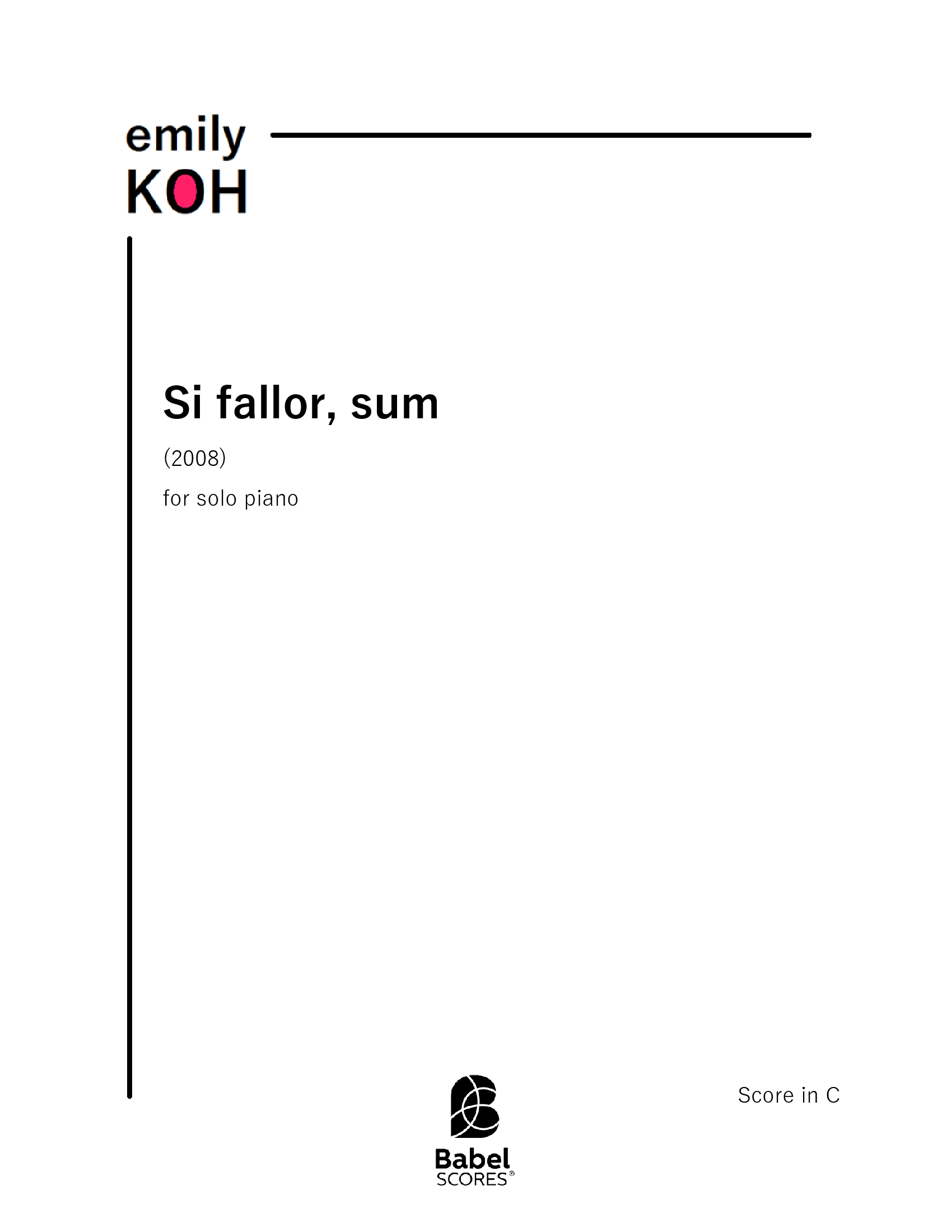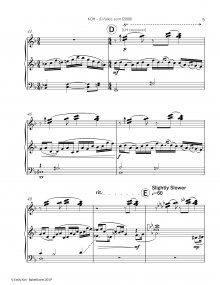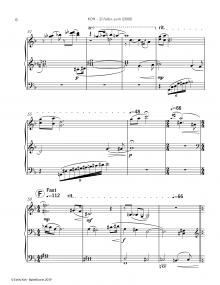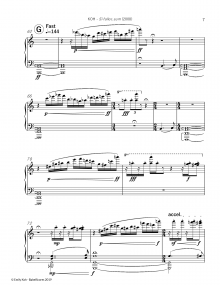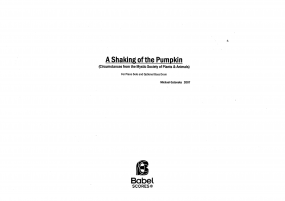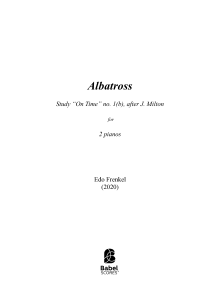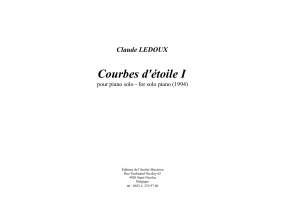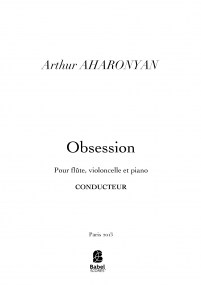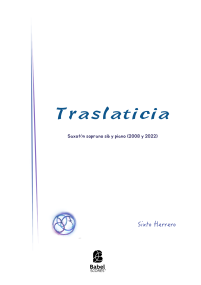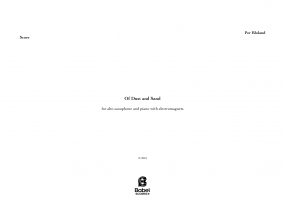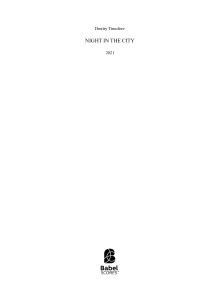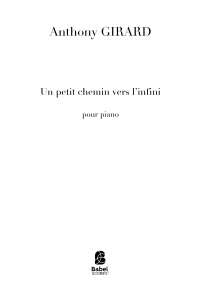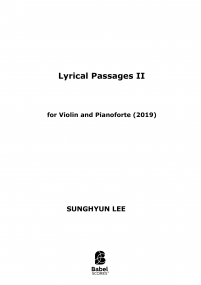Recherche avancée
Si fallor, sum
for solo piano
7,21 €
Version papier (+14,80 € impression et livraison ). Colissimo7-14 days aprox.
Version numérique (+0,00 €) à télécharger
Chez BabelScores, quand vous achetez une partition, vous pouvez ensuite contacter directement le compositeur ici même !
Caractéristiques
Region
North America (Canada - USA)
Estimated Duration
6 - 10min
Date
2008
ISMN : 979-0-2325-3622-4
Vidéos
Notes sur cette pièce
Ajouter à une playlist
- Identifiez-vous pour créer une liste
The foundations of Western philosophy can be seen in ‘Cogito, ergo sum’ (‘I think, therefore I am’), a philosophical statement used by René Descartes in his Discourse on Method (1637). Although the idea expressed in ‘Cogito, ergo sum’ is widely attributed to Descartes, many predecessors offer similar arguments — particularly St. Augustine of Hippo in De Civitate Dei: ‘Si […] fallor, sum’ (‘If I am mistaken, I am’) (book XI, 26).
“For if I am mistaken, I am. For one who does not exist cannot be mistaken either.” – St. Augustine of Hippo
Si fallor, sum is written as a concert-opening piece with its brash opening chords that wakes the audiences’ ears. These chords cast the foundations of the harmonic language and melodic motives to follow in the piece. Si fallor, sum is like a smorgasbord of sounds, created by the organic, spontaneous and continuous development of the opening gesture; like "Si fallor, sum" had developed into what we see as Western philosophical thought today.
Instrumentation
Piano
Recording
Performed by Khoo Hui Ling
Score Details
Format - A4 / US Letter
Pages - 22
Pages - 22

